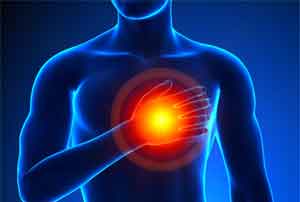- Home
- Editorial
- News
- Practice Guidelines
- Anesthesiology Guidelines
- Cancer Guidelines
- Cardiac Sciences Guidelines
- Critical Care Guidelines
- Dentistry Guidelines
- Dermatology Guidelines
- Diabetes and Endo Guidelines
- Diagnostics Guidelines
- ENT Guidelines
- Featured Practice Guidelines
- Gastroenterology Guidelines
- Geriatrics Guidelines
- Medicine Guidelines
- Nephrology Guidelines
- Neurosciences Guidelines
- Obs and Gynae Guidelines
- Ophthalmology Guidelines
- Orthopaedics Guidelines
- Paediatrics Guidelines
- Psychiatry Guidelines
- Pulmonology Guidelines
- Radiology Guidelines
- Surgery Guidelines
- Urology Guidelines
Rivaroxaban has no benefit in cardiac illnesses not associated with AF: NEJM

Rivaroxaban, an oral anticoagulant drug does not reduce the risk of death, stroke or myocardial infarction than placebo among patients with worsening chronic heart failure, coronary artery disease, reduced left ventricular ejection fraction and no atrial fibrillation.
These are late-breaking results from the Commander HF trial presented today in a Hot Line Session at ESC Congress 2018 and with simultaneous publication in NEJM.
Heart failure is associated with activation of thrombin-related pathways, which predicts a poor prognosis. Faiez Zannad, professor, University of Lorraine, Nancy, France, and colleagues hypothesized that treatment with rivaroxaban, a factor Xa inhibitor, could reduce thrombin generation and improve outcomes for patients with worsening chronic heart failure and underlying coronary artery disease.
In this double-blind, randomized trial, 5022 patients who had chronic heart failure, a left ventricular ejection fraction of 40% or less, coronary artery disease, and elevated plasma concentrations of natriuretic peptides and who did not have atrial fibrillation were randomly assigned to receive rivaroxaban at a dose of 2.5 mg twice daily or placebo in addition to standard care after treatment for an episode of worsening heart failure. The primary efficacy outcome was the composite of death from any cause, myocardial infarction, or stroke. The principal safety outcome was fatal bleeding or bleeding into a critical space with a potential for causing permanent disability.
"The most likely reason rivaroxaban failed to improve the primary efficacy outcome is that thrombin-mediated events are not the major driver of cardiovascular events in patients with recent heart failure hospitalization. Whether a higher dose of rivaroxaban could have led to a more favorable result is unknown," said Zannad.
Key Findings:
- During a median follow-up period of 21.1 months, the primary endpoint occurred in 626 (25.0%) of 2507 patients assigned to rivaroxaban and in 658 (26.2%) of 2515 patients assigned to placebo (hazard ratio, 0.94; 95% confidence interval [CI], 0.84 to 1.05; P=0.27).
- No significant difference in all-cause mortality was noted between the rivaroxaban group and the placebo group (21.8% and 22.1%, respectively; hazard ratio, 0.98; 95% CI, 0.87 to 1.10).
- The principal safety outcome occurred in 18 patients who took rivaroxaban and in 23 who took placebo (hazard ratio, 0.80; 95% CI, 0.43 to 1.49; P=0.48).
"Rivaroxaban at a dose of 2.5 mg twice daily was not associated with a significantly lower rate of death, myocardial infarction, or stroke than placebo among patients with worsening chronic heart failure reduced left ventricular ejection fraction, coronary artery disease, and no atrial fibrillation," concluded the authors.

Disclaimer: This site is primarily intended for healthcare professionals. Any content/information on this website does not replace the advice of medical and/or health professionals and should not be construed as medical/diagnostic advice/endorsement or prescription. Use of this site is subject to our terms of use, privacy policy, advertisement policy. © 2020 Minerva Medical Treatment Pvt Ltd